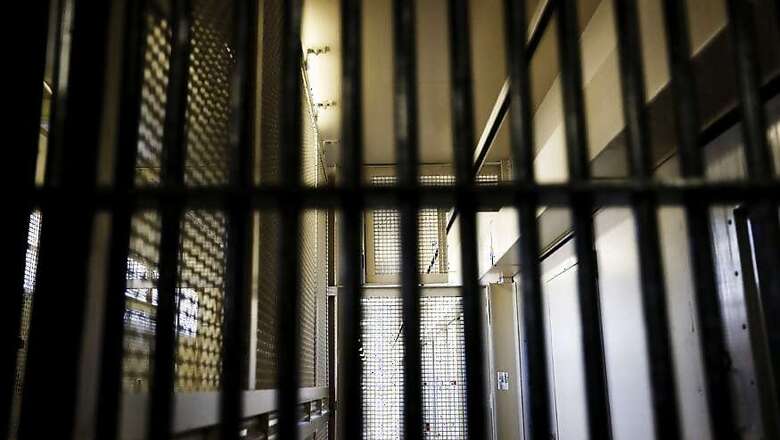
views
A high-powered committee appointed by the Maharashtra government has decided to temporarily release around 50 per cent prisoners to decongest jails across the state in the wake of the COVID-19 pandemic.
It has, however, not specified any time frame for the jail authorities to release the prisoners.
The panel, while taking the decision on Monday, also said that prisoners convicted or booked on serious charges under the Indian Penal Code (IPC) and stringent law provisions like the MCOCA, UAPA and PMLA will not be released on temporary bail or parole.
The committee, comprising Bombay High Court Justice A A Sayed, Additional Chief Secretary of state Home department Sanjay Chahande and Maharashtra Director General Prisons S N Pandey, was set up after the Supreme Court in March called for decongestion of prisons across the country due to the outbreak of coronavirus.
It took a decision on Monday to release around 50 per cent of the prisoners from jails across the state on temporary bail or parole.
While the committee did not specify any time frame for the release, it said the jail authorities shall follow due process of law before releasing prisoners.
"This would substantially decongest jails and about 50 per cent of prisoners out of the prisons' population of 35,239 are now expected to be released, the committee said.
The decision comes after over 100 inmates and staff members of the Arthur Road Jail in central Mumbai tested positive for COVID-19. A 54-year-old inmate of the Byculla women's jail also tested positive for coronavirus last week.
The panel in its decision said only those prisoners who are convicted or facing trial for offences which are punishable up to seven years' imprisonment shall be entitled to be released on temporary bail or parole.
Prisoners convicted or booked on serious charges under the IPC and special Acts, like the Maharashtra Control of Organised Crimes Act (MCOCA), Maharashtra Protection of Interest of Depositors (MPID) Act, Unlawful Activities Prevention Act (UAPA) and Prevention of Money Laundering Act (PMLA), will not be released on temporary bail or parole.
The panel also rejected a representation filed by advocate S B Talekar, claiming that the decision to not release prisoners charged or convicted under the special Acts was discriminatory and arbitrary.
It noted that the Supreme Court had left it to the absolute discretion of the committee to determine which class/category of prisoners can be released on temporary bail or parole, depending not only upon the severity of the offence but also the nature of the offence.
The committee said prisoners who are not entitled to temporary bail or parole will have to seek regular bail from the courts concerned.
"It would be necessary to look at the facts on case to case basis by a judicial mind before releasing such prisoners, after considering the likelihood of them absconding and/or tampering with evidence or witnesses, the panel said.




















Comments
0 comment